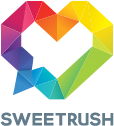How Do You Measure Learning Impact? Focusing On LX And Outcomes
In the ever-evolving world of Learning and Development (L&D), analytics and reporting remains a top concern. After all, training is an investment, and you deserve to know if it's paying off. But how do you measure the impact of learning in a meaningful, data-driven way?
At SweetRush, we believe that exceptional learning experiences (LX) are the key to driving real business outcomes. Our Learner-Centered Design (LCD) Standards provide a framework for L&D teams to craft learning experiences that meet both the learners’ needs (for a great experience) and the business’ needs (for measurable outcomes).
- Four of the LCD Standards (Relevant, Intuitive, Adaptive, and Efficient) focus on the LX itself, qualities that maximize learning and hence help bring about desired outcomes.
- The remaining LCD Standards (Memorable, Connective, Empowering, Effective) focus on the outcomes of the LX, and how the LX will make learners better and so achieve business results.
In this article, we explore the four, outcomes-focused LCD standards and provide practical strategies for measuring the success of your training initiatives.
Want more tips for creating impact?
Want more tips for creating impact? Download the L&D And Learner Experience 2024 Trends Report! It's packed with insights and actionable advice to help you elevate your training programs to new heights.
Our Four Outcome-Based LCD Standards And Ways To Measure Them
1. Memorable
The LX enabled learners to recall skills and knowledge when they're needed.
An L&D team needs to target the skills and knowledge employees need to do their job well, and then devise ways to measure their application, say a mix of job task analysis, talking to managers and employees, conducting post-training assessments, and so on. Ideally, measurement is taken before and after the LX so you can track improvement and so make an argument that the LX was responsible. Simulations or capstone activities (in which you place learners in simulated or real situations to apply what they were taught) are very useful for measuring gains – and are also invaluable for uncovering skill and knowledge gaps that you can address with additional training and support.
2. Connective
The LX hooked up learners to the system (human, process, technology, natural) in which they operate.
Measuring learners' use of outside help, such as their searches on an intranet, their use of social forums, or the frequency they reach out to a colleague or coach, can indicate whether the LX made them feel more a part of the system they're in. As with the above, pre- and post-training measurements allow you to identify improvements, which you can then attribute to the LX. Employee post-LX surveys that measure whether they feel they belong and are being supported are also illuminating.
3. Empowering
The LX gave learners the capacity to act and the confidence to do so.
Typically, this includes measuring whether learners are taking action and assuming responsibility for further improvement, say by conducting manager surveys or by providing additional resources to learners post-training and seeing whether they use them. We often put optional links to resources into our training, then use xAPI to track which ones learners pursue, as a means of measuring interest.
4. Effective
The LX helped learners gain proficiency and perform better.
This is the bottom line of all training. Manager and 360 evaluations can be used to weigh effectiveness, and in some cases, productivity measures (such as call resolution in a call center or throughput and MTBF in manufacturing) offer a story. Another useful technique is to survey the learners – how they want to perform better, and what is getting in their way – before commencing learning design, then surveying them afterwards to see if they think we addressed their needs.
Wrapping Up
Identifying desired outcomes and how to measure them at the start of the project heightens the probability of achieving them. You can also download the L&D And Learner Experience 2024 Trends Report today to delve into the findings and discover how you can leverage the latest technologies and strategies to enhance your training program.






![The Impact Equation: A Practical Guide To Measure And Demonstrate Training Impact [eBook Release]](https://cdn.elearningindustry.com/wp-content/uploads/2023/10/Measure-Training-Impact-A-Practical-Guide.jpg)


